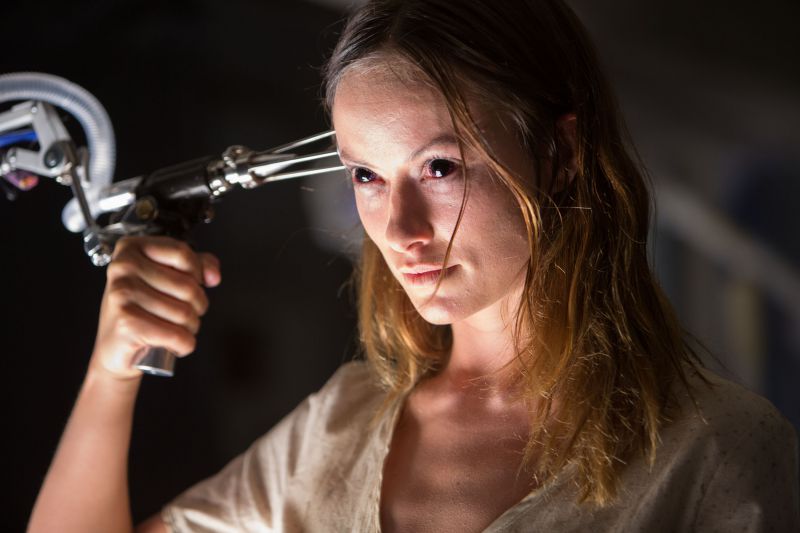The film does what it sets out to do, even if what it does isn’t particularly challenging to start with
Director: David Gelb
Cast: Mark Duplass, Olivia Wilde, Donald Glover, Evan Peters, Sarah Bolger
Rating: 12
Running time: 83mins
Like its predecessors (FLATLINERS, REANIMATOR) THE LAZARUS EFFECT’s derives its impetus from the faith in science of late modernity, and the Heideggerean insight that nature – including man’s own – is prey to technical mastery. Scientific masterminds experiment at the edge of death and beyond, only to be entrapped by corporations whose profit imperative forces individual ingenuity into a uniform push; sparking a dangerous game of result chasing.
When THE LAZARUS EFFECT examines its shop-worn themes, the script tends to only scratch the surface. Heavy handed characterisation doesn’t help. The team headed by Frank and Zoe (Mark Duplass and Olivia Wilde) are crudely sign posted as ‘atheist scientist’ and ‘religious scientist’. Zoe, the only believer in the team, becomes a vessel of vengeance: a theological metaphor for defying (God’s) nature’s life cycle.
Early on, the team resurrect a dead dog, but the warning signs are evident. The dog is aggressive, attacking one of the younger scientists. With the pressure of the techno-scientific community on their funding, Frank makes the drastic decision to use their research on a human after a freak accident. This snap decision opens the team up to a night of terror and death.
Although largely derivative, The Lazarus Effect only intermittently feels burdened by its influences. The film moves through the gears early on, relying on reasonably well-executed thrills and jump-scares,while papering over its lack of experimentation. However, some of its writing grates. The rote trope of a young scientist who is both feckless and rebellious, while being the genius of the group, is deeply irritating, for instance.
Limiting the film to the labs, director David Gelb successfully creates a hermetic, unsettling vibe throughout. However, the final act feels tonally at odds with the bulk of the film, as if the writer wanted to force the theological subtext into the foreground at last minute. Also, at times, the narrative stutters due to questionable character motivation and unexplained shifts between dream and real time space.
The acting is reasonable for the genre, with Olivia Wilde convincingly playing protagonist-turned-antagonist. She’s creepy, especially for someone who normally comes across as sultry. The makeup and special effects are subtle and timely, and excessive, cartoonish gore is avoided during the death scenes. At a brief run time of 83 minutes, THE LAZARUS EFFECT doesn’t outstay its welcome, providing pacey, taunt entertainment while immersing the viewer in the chaos of the ill-fated series of experiments.
Overall the film treads water. The set pieces and relentless stalking of the hapless science team makes for tense viewing. The film isn’t entirely memorable, but a solid addition to the scientists-overplaying-their-hand subgenre. It’s a genre with traditionalist-conservative resonance, the techno-scientific equivalent of teens paying for transgressive sex acts and drug use, so it follows that it’s largely predictable. THE LAZARUS EFFECT does what it sets out to do, even if what it does isn’t particularly challenging to start with.
Verdict





























